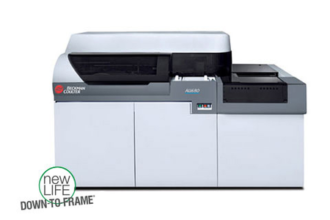In today’s fast-paced world, mastering time management is no longer a luxury—it’s a necessity. From juggling personal commitments to managing work responsibilities, time often feels like it’s slipping away. Yet, with the right strategies, you can reclaim control of your schedule, boost your productivity, and reduce stress. Effective time management isn’t about doing more in less time; it’s about doing the right things with purpose and efficiency. This article explores proven strategies to help you master time management and reach peak productivity.
Understand Where Your Time Goes
Before you can begin managing your time effectively, you must understand how you currently use it. Many people underestimate the time they spend on certain tasks or fail to notice how much of their day is consumed by distractions. Start by tracking your daily activities for one week. You can use a journal, spreadsheet, or a time-tracking app to log everything you do and how long each task takes. At the end of the week, analyze your patterns. Are you spending too much time on social media? Do certain meetings drag on unnecessarily? Identifying time-wasting habits is the first step toward creating a more productive routine.
Set Smart Goals
Time management begins with clear goal-setting. Without goals, it’s easy to drift through tasks without purpose. To set effective goals, use the SMART criteria: Specific, Measurable, Achievable, Relevant, and Time-bound. Instead of a vague goal like “I want to be more productive,” try something more specific like “I will complete two chapters of my book by Friday.” SMART goals help you focus on results and keep your daily activities aligned with your long-term vision.
Prioritize Tasks Using the Eisenhower Matrix
Not all tasks are of equal importance. The Eisenhower Matrix is a powerful tool for prioritizing your to-do list. It divides tasks into four categories: urgent and important (do these immediately), important but not urgent (schedule these), urgent but not important (delegate them), and neither urgent nor important (eliminate them). By focusing on tasks that are both important and impactful, you can spend more time on what truly matters and less time putting out fires.
Time Blocking for Structured Days
Time blocking is a scheduling method that helps you allocate specific time slots for different activities throughout your day. This technique helps reduce distractions and ensures you spend focused time on your most important tasks. For example, you might block 9:00–11:00 a.m. for deep work like writing or planning, 11:00–12:00 p.m. for meetings, and 1:00–2:00 p.m. for email responses. Time blocking also encourages a realistic approach to what can be accomplished each day while preventing overcommitment.
Boost Focus with the Pomodoro Technique
For tasks that require sustained concentration, the Pomodoro Technique is highly effective. It involves working in focused 25-minute intervals (called “Pomodoros”) followed by a 5-minute break. After four Pomodoros, take a longer 15-30 minute break. This method helps you stay mentally fresh and reduces burnout, especially during long or mentally intensive work sessions. It’s simple but surprisingly powerful in maintaining consistent productivity throughout the day.
Learn to Say No
One of the biggest threats to time management is the inability to say no. Saying yes to every request or opportunity can quickly lead to overwhelm. It’s essential to recognize your limits and protect your time. If a task or request doesn’t align with your priorities or adds unnecessary pressure, politely decline. Setting boundaries is not selfish—it’s a necessary part of being productive and maintaining a healthy work-life balance.
Automate and Delegate Where Possible
You don’t need to do everything yourself. Look for tasks that can be automated or delegated. Tools like the best clinic management software can streamline repetitive processes such as scheduling, billing, and patient record management, saving you valuable time. Delegation, on the other hand, involves trusting others with responsibilities so you can focus on what you do best. Freeing up even a small portion of your time can significantly enhance your efficiency and allow you to concentrate on high-value activities.
Eliminate Distractions
Distractions are productivity killers. Common culprits include smartphones, noisy environments, and constant email alerts. To create a focused work environment, identify your most frequent distractions and eliminate or minimize them. Turn off non-essential notifications, close unused browser tabs, and designate quiet periods in your day where you focus exclusively on one task. A distraction-free environment significantly improves the quality and speed of your work.
Conduct Weekly Reviews
Set aside time each week to review your progress. Reflect on what went well, what challenges you faced, and what you can improve. A weekly review helps you stay aligned with your goals and make necessary adjustments to your schedule and workload. It also serves as a reality check to ensure you’re not overloading yourself or neglecting important tasks. Continuous improvement is a key component of effective time management.
Don’t Neglect Your Health
Productivity is closely tied to physical and mental well-being. Poor health can drain your energy, cloud your judgment, and slow you down. Make self-care a non-negotiable part of your schedule. Prioritize sleep, eat nutritious meals, exercise regularly, and take breaks to recharge. Incorporating mindfulness or short walks during the day can help refresh your mind and prevent burnout. A healthy body and a clear mind are your most valuable productivity tools.
Conclusion
Mastering time management is a journey, not a destination. It involves self-awareness, discipline, and a willingness to adapt. By understanding how you spend your time, setting SMART goals, prioritizing effectively, and creating a distraction-free work environment, you can significantly boost your productivity. Leveraging tools like a premium electronic health record system can also streamline workflows and reduce administrative burdens, giving you more time to focus on what matters. Combine these strategies with self-care and regular reflection, and you’ll not only get more done but also lead a more balanced, fulfilling life. Time is your most valuable resource—manage it wisely.





